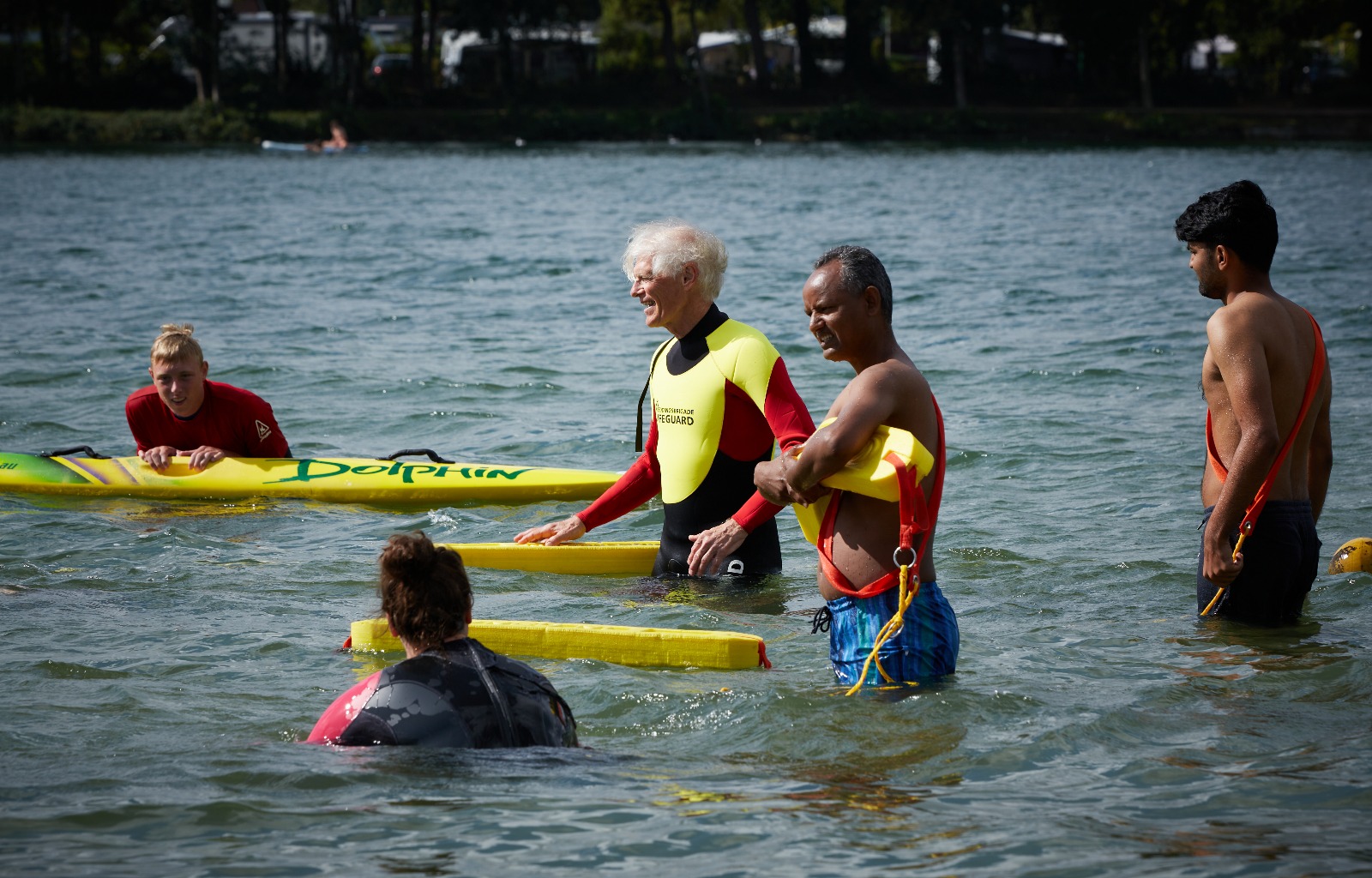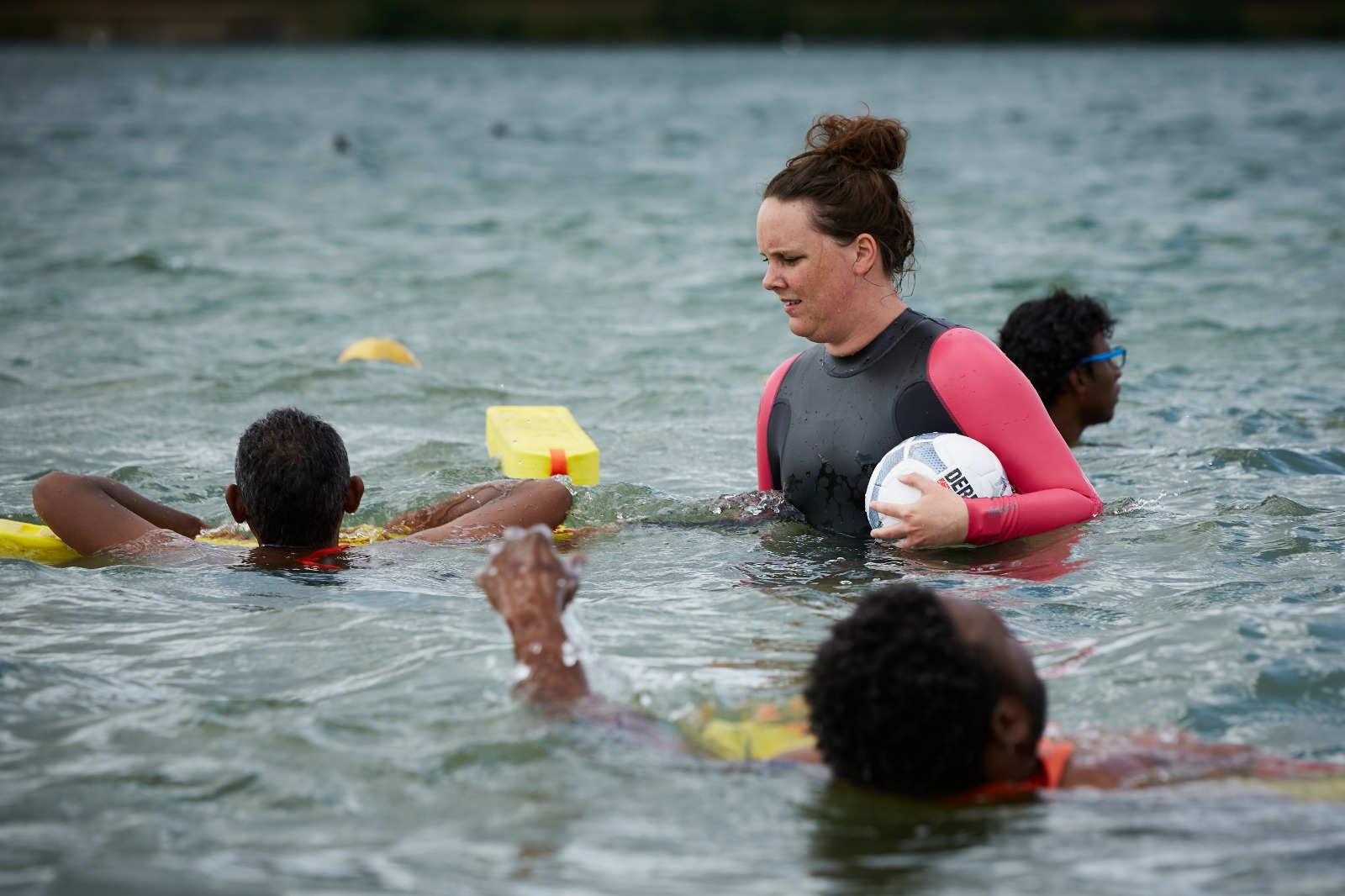TinklaraštisArticlesMaking waves for water safety: Open Badges and Cities of Learning enable life-saving education
Awero team
Making waves for water safety: Open Badges and Cities of Learning enable life-saving education
15 lie, 05:40
For a country with such a strong connection to water, and despite its stringent water safety measures, the dangers of water are still a pressing concern in the Netherlands. In 2023 alone 98 people drowned, a slight increase on previous years. And globally 236,000 people die annually in the water, making it the third leading cause of intentional injury death worldwide, with children under five and older adults being particularly vulnerable.
It is within this picture that ExpeditieRED, a Dutch social service initiative (MDT) which is funded by national authorities, is making waves. Led by Theo Hutten, the project uses the Cities of Learning platform and Open Badges to equip young people with essential water safety knowledge and practical life-saving skills. Its mission: to prevent drownings and promote community resilience through inclusive, accessible learning.

A triple approach to prevention
ExpeditieRED works with three key groups to tackle the issue: swimming association members, migrants and school students, each bringing their own distinct challenges, as well as contributing to the goal of water safety in their own unique ways.
When it comes to people involved in local swimming clubs, the potential benefits weren’t immediately apparent as Theo explains.
“Initially, we didn’t see them as the most urgent group. They were focused on becoming better swimmers or instructors, not necessarily on saving lives,” he reflects. “But they were also the easiest to engage through structured training.”
The migrant group represented a higher-risk when it comes to water safety, with many coming from countries with limited waterways or less cultural exposure to swimming. But finding themselves in a country with such an affinity to water, can pose difficulties.
“Sometimes they’re living near lakes or open water without knowing the risks,” Theo explains. “It’s very dangerous. We try to educate them not just about swimming, but about our water culture and safety expectations.”
But engagement hasn’t been simple. Language barriers and cultural differences around gender roles and authority in training contexts have presented challenges. “If you speak Syrian Arabic, and we can only offer Dutch or English, it’s hard to connect,” says Theo. “We hope extended reality tools or multilingual content might help bridge that gap in the future.”
The intention when it came to school students was for them to play a guiding role with younger peers, offering mentoring or assisting with water safety education. However, for this group a focus on curriculum activities and internships in schools, meaning time for social service initiatives was limited, presented its own hurdles to overcome.
“Schools are running a lot of different projects now,” Theo explains. “We only got a few students, and that made it hard to build a consistent programme.”
Despite these challenges, one thing became clear for all three groups: traditional training models were too rigid. That’s where Open Badges and Cities of Learning made the difference.
Breaking down barriers with Open Badges
“A big problem was the perception of time,” says Theo. “Young people [in the swimming clubs] told us, ‘I can’t commit to a year-long trainer course.’ So we used Open Badges to break it down into small steps, with clear progression.”
This approach allowed participants to visualise their development and engage with training at their own pace. “We now have a growth path: from beginner to club head trainer,” Theo explains. “Normally that would take a year, but with badges and motivated learners, we’ve seen clubs finish level two in just six months.”
Within ExpedititeRED’s learning playlists, each badge corresponds to a specific task or competency, giving learners a river of learning to swim through. “We describe what they do and what they’ve learned. It’s very helpful.” Theo says. “And it's also motivating too. They can compare badges - ‘you’ve got this one? I want it too!’ It creates friendly competition, which is especially effective in a sports environment.”
This light-touch gamification of the learning journey has had a transformative impact, allowing participants to take initiative and practice independently. Ultimately, it creates recognition not just for final performance, but for every step in the journey.
“At first, we only made performance badges, but now we understand how valuable process badges are too,” Theo adds.

Open Badges bring added value
One of the benefits that Theo has observed through the project, is swimming club participant’s willingness to plunge in and go the extra mile, even when doing so isn’t a requirement for the formal qualifications.
“[When learners are completing] level two, they don’t need to write their own training schemes,” he explains. “But many of our learners do, because there’s no-one else to do it. And that kind of initiative deserves recognition.”
This insight, paired with the flexibility of Cities of Learning and Open Badges, has also prompted ExpedititeRED to rethink how their badge systems reflect real-world tasks. As well as recognising the learning participants are doing in the world of water safety, the team are now capturing effort, leadership and growth, competencies which often go unseen.
“We need to show what people actually do,” Theo says. “That’s the value of Open Badges.”
Diving into lifelong learning for a broader impact
Theo’s aspirations for the future extend beyond ExpeditieRED’s current scope, and his agenda includes future discussions with the Dutch Olympic Committee about how to integrate badge-based learning into national sports training and certification schemes.
“People train for years, developing leadership and discipline, but when they stop competing, it’s like falling into a black hole,” he says. “We could document those skills with badges and support their transition to new careers.”
He also envisions a role for Cities of Learning in global water safety projects. “I’ve worked in Indonesia, and I wish we had Cities of Learning there,” he explains. “We could have scaled up so much faster, empowering local trainers rather than sending Dutch experts abroad.”
As for others considering this approach, Theo’s message is simple: “Start small, learn from others, and be open to change. The platform is strong, and the impact is real.”
ExpedititeRED is a member of the Cities of Learning Network and a holder of the Quality Label for Badge Recognition. You can find out more about what they do here.
Funded by the European Union. Views and opinions expressed are however those of the author(s) only and do not necessarily reflect those of the European Union or the European Education and Culture Executive Agency (EACEA). Neither the European Union nor EACEA can be held responsible for them.

Dalintis:
Awero palaiko šią platformą ir plėtoja ją kartu su pagrindinėmis švietimo organizacijomis. Europos Sąjungos programa Erasmus+ dalinai finansavo pirmosios platformos versijos sukūrimą. Susisiekite su mumis support@Awero.org.
Platforma
Pakeisti į kitą kalbą:
